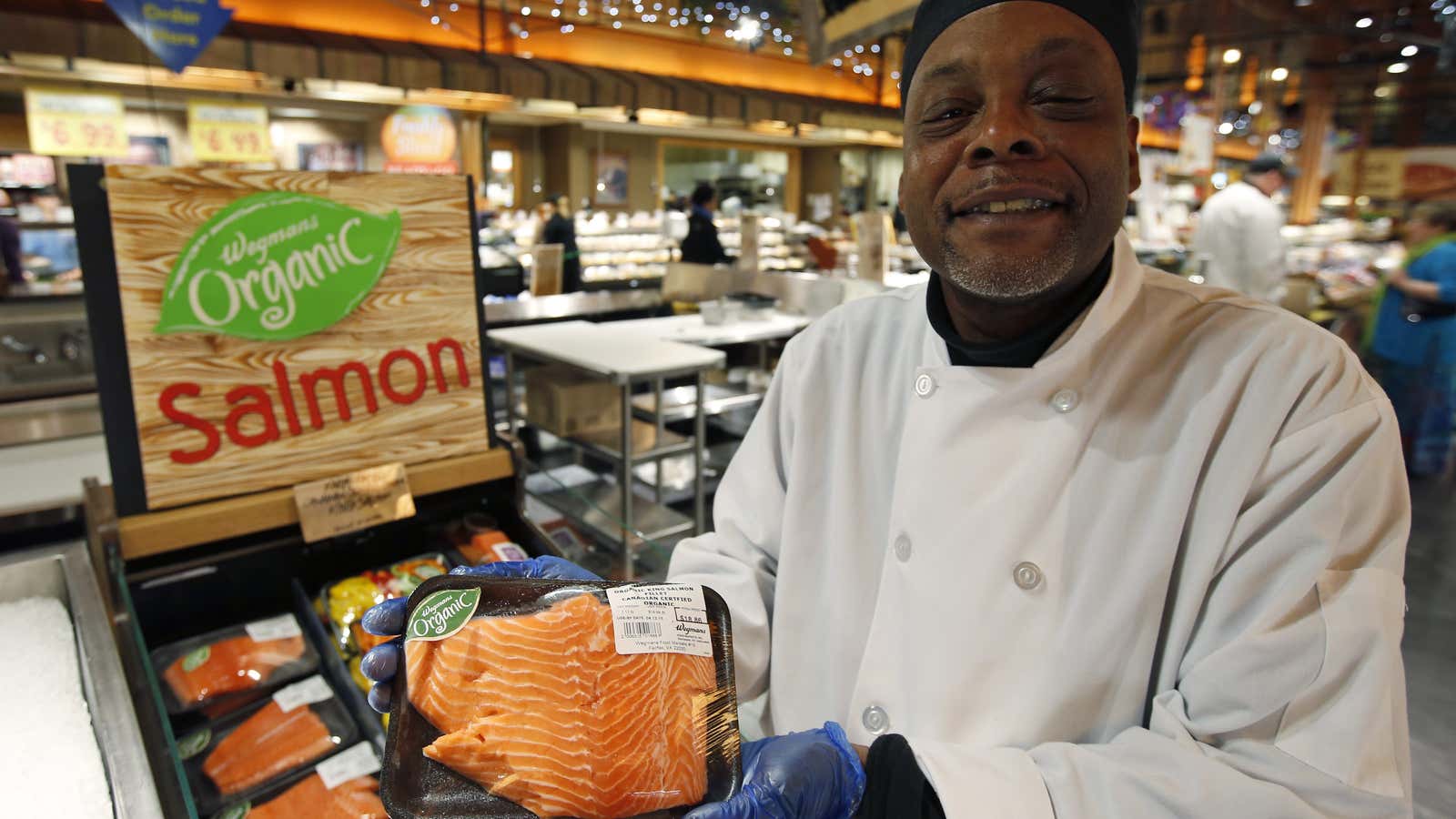Fortune magazine’s list of the best companies to work in the US for is perennially dominated by sexy names. This year, it includes Google, with its abundant perks and freedom to innovate; Genentech, a biotech where employees are united around the goal of curing cancer; and the Boston Consulting group, with its high pay and challenging assignments.
Nestled among them is Wegmans Food Markets, a decidedly low-tech, regional supermarket chain based in unglamorous Rochester, New York.
This is Wegmans’ 20th time making the Fortune list, and this year they’re ranked second, behind Google. It’s not immediately obvious why they fare so well. Salaries are not high: According to Glassdoor, cashiers average $9.44 an hour, while department managers make about $60,000 a year. The work is not particularly exciting or challenging, and while helping customers feed their families can be rewarding, it’s not exactly curing cancer.
In their responses to Fortune’s survey, Wegmans stands out by offering schedule flexibility, opportunities for advancement and thoughtful gestures, like cakes on birthdays and hot chocolate for employees working outside in the cold. The reviews on Glassdoor back up Fortune’s survey, with employees repeatedly praising a family-like work environment. Perhaps that shouldn’t be a surprise: Wegmans has been family-owned for a century.
All that employee love is paying off. Wegmans is growing rapidly, expanding from its northeast base to add stores in Virginia (there are now 92 stores in six states), and revenues reportedly climbed to $7.9 billion in 2015 from $6.2 billion in 2011.
Psychologists and behavioral economists understand that employees do better when they feel their work has meaning, and that praise and non-financial incentives can be more effective at motivating them than higher pay and bonuses. In experiments, Duke economist Dan Ariely found Israeli factory workers were more productive for longer when they were rewarded with gift certificates for pizza instead of cash. Ariely theorizes that employees will give extra effort when they believe their employers care about them and their families; he even suggests companies set aside employee pay to fund their children’s college tuition.
As it happens, Wegmans does something quite similar and last year granted $5 million in college scholarships to its employees. While some go elsewhere after receiving their degree, many return to careers at this unassuming supermarket.
